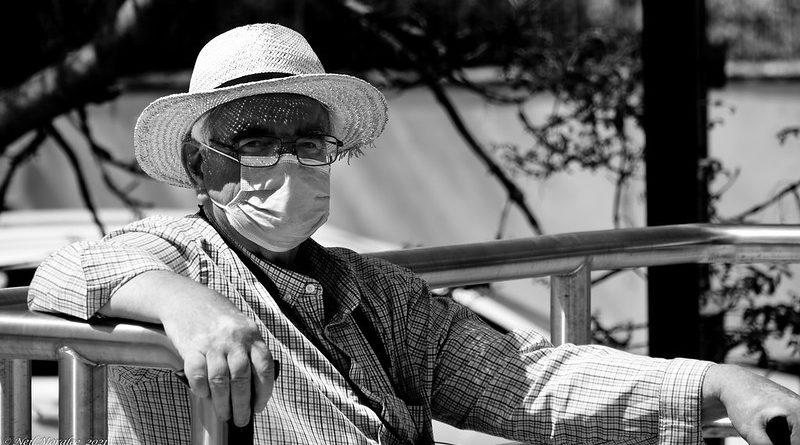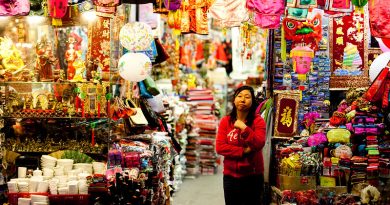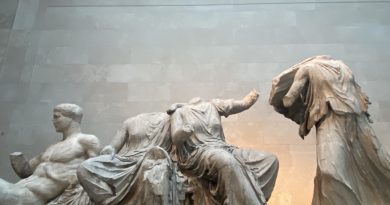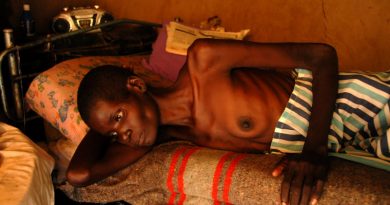Written by Ian Cross
As the world gradually recovers from the Covid-19 pandemic, society is re-opening; some places more tentatively than others.
During the pandemic it introduced an equally wide range of containment measures. Many were in Asia where strong containment measures at first limited the spread of the virus. However, slow and low vaccination rates mean many restrictions on movement remains.
The following are some of the toughest and strangest Lockdown measures:
Diapers in China
During the height of the pandemic, Chinese authorities mandated that on board airline personnel such as flight attendants wear disposable diapers so they didn’t need to use the bathroom.
In a directive on PPE (personal protective equipment) authorities advised cabin crew on flights to and from high-risk countries to wear “medical masks, double-layer disposable medical gloves, goggles, disposable hats, disposable protective clothing, and disposable shoe covers.” Another sentence read: “It is recommended that cabin crew members wear disposable diapers and avoid using the lavatories barring special circumstances to avoid infection risks.”
Supporters of this requirement said it was no secret that lavatories could be the “germiest place on an airplane”. It pointed to a woman traveling from Italy to South Korea who contracted coronavirus during her trip. A visit to the bathroom, the only place where she didn’t wear a mask, was named as the possible source of her infection.
Airplane bathroom design was already a hot topic before Covid-19, but the pandemic has focused efforts to come up with new solutions.
Japanese airline ANA has announced earlier this year that it is testing a prototype of a new
hands-free lavatory door. Meanwhile, Boeing has successfully applied for a patent on a “
self-cleaning lavatory” that would use UV light to clean 99.9% of bathroom germs after every use.
Australia’s internal border restrictions NSW/Queensland border
Australia has introduced some of the world’s toughest international border restrictions. It has closed its borders to international travellers and prevented its own citizens from returning home or even leaving the country .
These draconian measures have been compounded by internal border closures between Australian states. Under Australia’s Federal system, state leaders have control over their borders and during the pandemic they have not been afraid to use these powers.
- The Queensland closed its border to all non-essential workers including teachers, tradesmen and hospitality workers.
- More than 6,000 vehicles have been intercepted at the border, with 606 turned back.
- The restrictions are a further economic blow for the border community.
- The Queensland government drafted in 1,000 troops to help its police force at the border.
Mark Westley from the Tweed area was among the crowd and said the public health directives were a “disgrace”.
“It’s a direct attack on my freedom of liberty, freedom to move,” he said. “It’s affecting people’s businesses and social lives.”
Mr Westley said it was a “direct challenge” to the fabric of Australia and added, “This will be the break-up of the Commonwealth of Australia, it will be the fragmentation of Australia into disparate, fighting, disputing groups and the end of democracy as we know it.”
Have a read of my personal experience with Australia’s restrictions here.
Separating the sexes in Panama
At the beginning of the pandemic, Panama announced one of the most aggressive measures in Latin America. Locals could only go out on alternate days according to their sex, as stated on their national identification cards. Women could only leave their homes to buy necessities on Monday, Wednesday and Friday, while men could go on Tuesday, Thursday and Saturday. Everyone had to stay home on Sundays. Even on their designated days, both men and women only had two hours to do their grocery shopping.
No speaking in public, Catalònia, Spain
At the height of its pandemic, Catalonia’s regional government asked that all public transport riders refrain from speaking, eating and drinking to prevent further spreading the virus.
Anal swabs in China
Foreign visitors were upset by China’s anal swab tests for COVID-19, prompting complaints of inconvenience and even psychological trauma, and stoking debate over their necessity. A few cities, such as the capital, Beijing, Shanghai and the port city of Qingdao required the checks, in addition to nasal or throat swab tests, for some international arrivals.
The Chinese Center for Disease Control said the test was performed with a sterile cotton swab, which looked like a very long ear bud, that was inserted 3 cm to 5 cm (1.2 inches to 2 inches) into the anus before being gently rotated out. They said tests could ensure infections were spotted, since coronavirus traces could be detectable in the anus for longer than in the respiratory tract.
Japanese authorities complained about the tests on some Japanese travellers to China, saying they had caused “great psychological pain”. South Korean visitors were then allowed to submit stool samples instead of “Chinese authorities taking them directly”, according to the South Korean foreign ministry.
Tracking Devices
Singapore has garnered the reputation for some of the world’s toughest hotel quarantine regimes. During days of quarantine, arriving travellers were not allowed to leave their hotel rooms. Their room key cards had mechanisms which locked the holder out of the room if they left it. Quarantine police were alerted, arrived on site and then levied a fine.
Most passengers arriving in Abu Dhabi, in the United Arab Emirates, were required to wear a tracking wristband during the mandatory 10-day home quarantine. All travelers also had to undergo thermal screening and COVID-19 testing at the airport.
“Self-isolation must take place at home and you will be required to wear a medically approved wristband for the duration. The wristband will be provided by the authorities at Abu Dhabi Airport after you clear immigration,” Etihad Airways said in the guidelines posted on its website.
Those under the age of 18, over 60, suffering from a chronic disease or holding a diplomatic passport are exempt from having to wear the wristband.
Singapore: tracking devices and hotel quarantine
At the start of the pandemic, Singapore started requiring people to carry a special digital device or use an app to help authorities track any contacts with coronavirus cases. It is mandatory for entering shopping malls and public places.
Authorities initially said the contact tracing system’s data was encrypted, stored locally, and only used if individuals tested positive for COVID-19. But last month, officials said the data had been used in a criminal investigation, raising questions over privacy and surveillance.
Additionally, travelers entering Singapore from most countries are required to serve a 14-day quarantine at a government designated facility at the traveler’s expense. The quarantine is strictly monitored by the government and the facilities are randomly assigned. One woman said she spent her entire quarantine in a 5-star hotel, while others recounted their experience holed up in rooms without windows and filled with cockroaches.
Last month, a Singapore court sentenced a British man to two weeks in jail after he sneaked out of his hotel room to meet his then fiancée during quarantine. He was also fined $752.56 for leaving his room three times, according to Reuters.
Similar quarantine requirements are also in place for most visitors traveling to Kuwait, Hong Kong and Australia.




